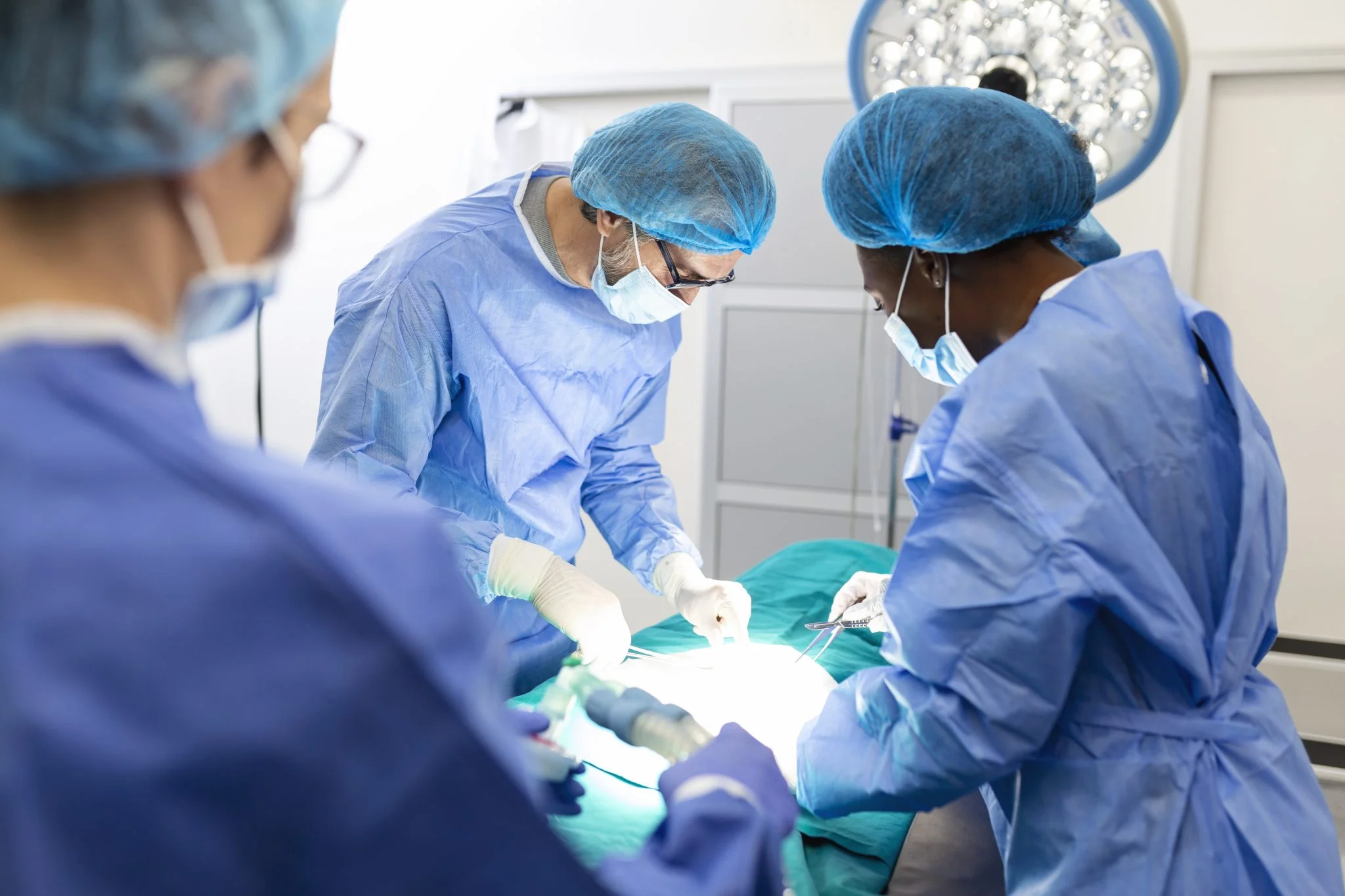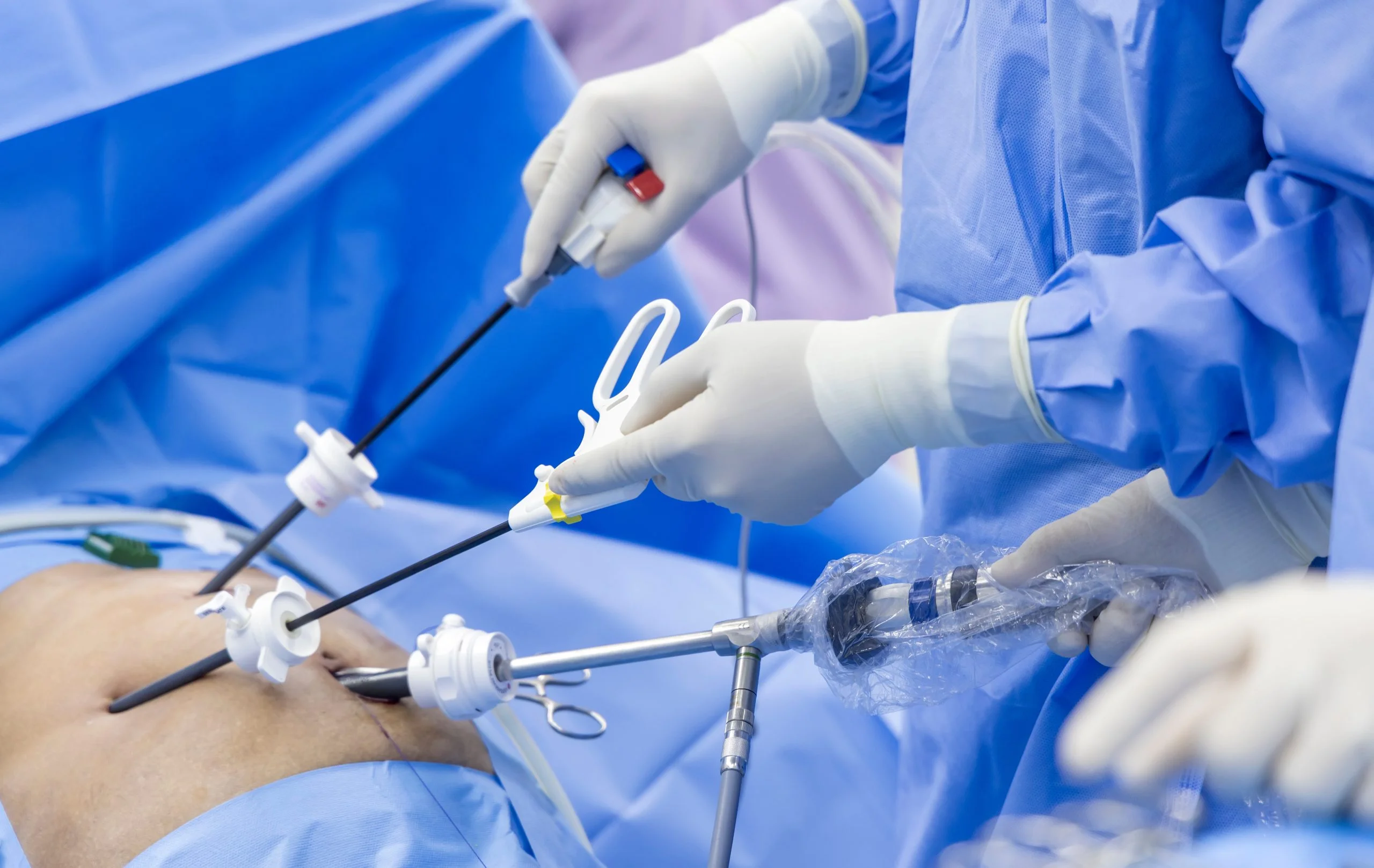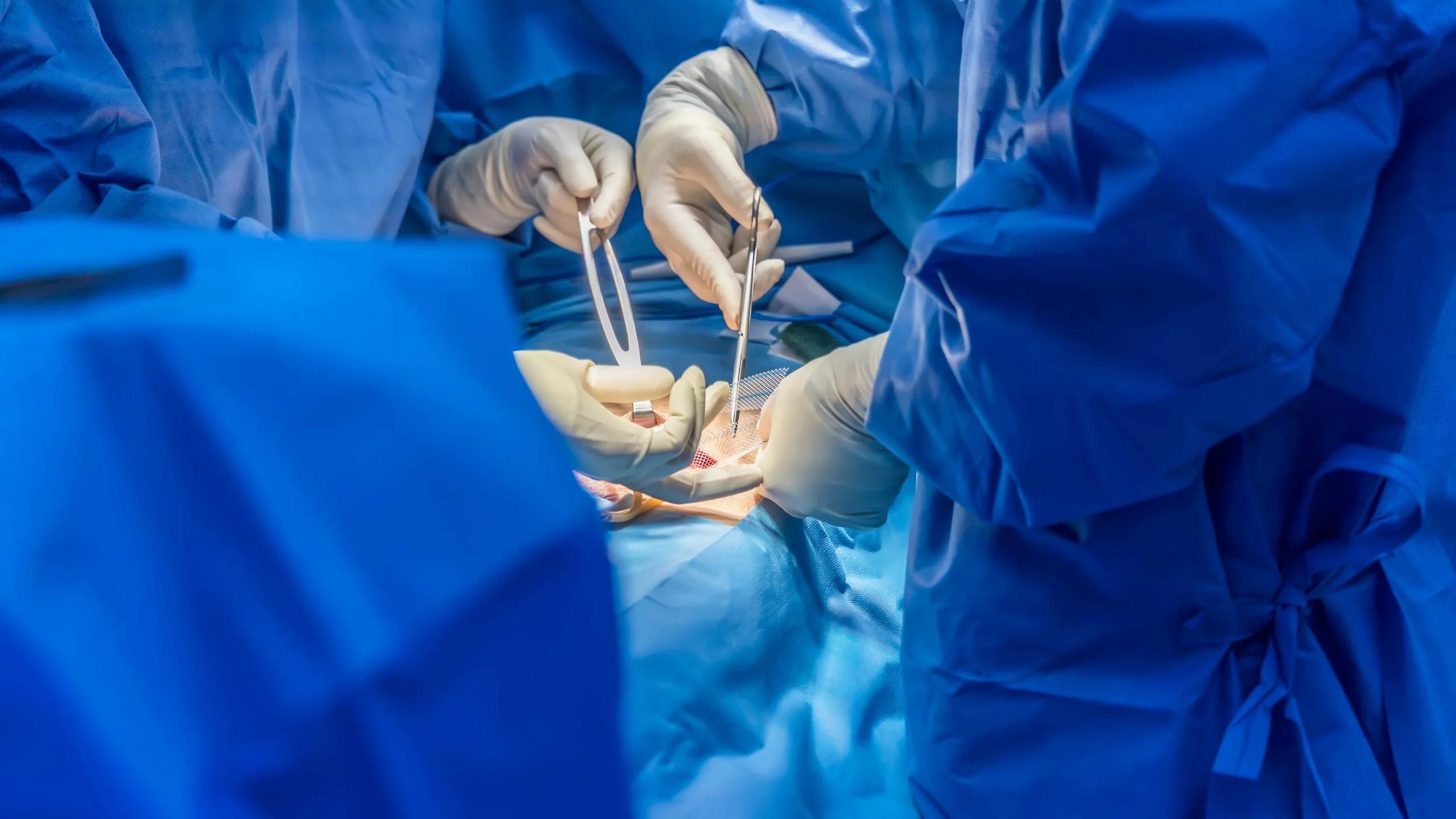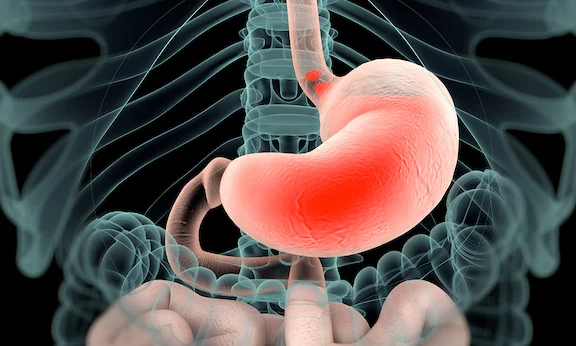Minimally Invasive General Surgery Dallas, Fort Worth, Mansfield & Plano
- Home
- General Surgery
- GI Surgery

Does Your Insurance Cover Weight Loss Surgery?
Leading-Edge GI Surgery: Precision and Care Combined
- Utilizing state-of-the-art techniques for optimal results.
- Prioritizing patient safety and comfort throughout the process.
- Tailored surgical approaches to cater to individual needs.
- A team of experienced surgeons dedicated to gastrointestinal health.
- Faster recovery times with minimally invasive procedures.
- Comprehensive pre and post-operative care.
- Consistent track record of successful surgical outcomes.
- A commitment to enhancing the quality of life post-surgery.
- Procedure
- Post-Op Care
- Risks & Complications
The placement of Orbera Gastric Balloon into the stomach is a simple, non-surgical outpatient procedure. First, a diagnostic test is done to make sure it is safe to perform the procedure. Then the deflated gastric balloon is inserted through the esophagus and into the stomach. Once it is in position, the balloon is inflated with saline and a dye, to maintain the required size. The procedure takes about 15 minutes to complete. The balloon is temporarily left in the stomach for about 6 months.
After the procedure, you may experience some cramps and nausea, as your stomach adjusts. Your throat may feel a little sore. You’ll follow a liquid or soft diet for a few weeks and followed by 6 months of a supervised diet plan. Our team will continue working closely with you during these 6 months.
As with any other procedure, Gastric balloon procedure involves certain risks and complications:
- Esophageal, gastric ulcers or perforation.
- Deflation of the balloon which can lead to blockage.
- Rupture of balloon dye (if used), which will be released in the urine.
Types of Minimally Invasive General Surgery
Cholecystectomy
Cholecystectomy, a minimally invasive GI surgery, is a laparoscopic procedure to remove a gallbladder that is inflamed, blocked, or filled with gallstones. The laparoscope is put into the body through a keyhole-size cut made just below the navel. To learn more about the procedure, and pre and postoperative care, click here.
Colorectal Surgery
Colorectal surgery treats colon and rectum related health conditions including appendicitis, colon cancer, rectal prolapse, and diverticulitis. The procedure involves operating on the colon and rectum by making 4 or 5 tiny incisions, and then inserting a laparoscope through the incision. To get detailed information about the procedure, click here.
Cholecystectomy
Cholecystectomy, a minimally invasive GI surgery, is a laparoscopic procedure to remove a gallbladder that is inflamed, blocked, or filled with gallstones. The laparoscope is put into the body through a keyhole-size cut made just below the navel. To learn more about the procedure, and pre and postoperative care, click here.
Colorectal surgery
Colorectal surgery treats colon and rectum related health conditions including appendicitis, colon cancer, rectal prolapse, and diverticulitis. The procedure involves operating on the colon and rectum by making 4 or 5 tiny incisions, and then inserting a laparoscope through the incision. To get detailed information about the procedure, click here.
Hernia Surgery
Inguinal hernias, especially when they’re smaller, can be easily repaired through a laparoscopic procedure. Laparoscopic hernia repair surgery involves making three or four small incisions in the abdomen. The surgeon then inserts a fiber-optic tube that has a tiny camera on the end. To learn more about the surgery, click here.
Anti-reflux Surgery
Gastroesophageal reflux disease (GERD) – a chronic disease of the gastrointestinal canal, can be treated using minimally invasive procedures such as LINX, Nissen Fundoplication, and Gastric Bypass. To learn more about anti reflux surgical procedures, click here.
Hernia Surgery
Inguinal hernias, especially when they’re smaller, can be easily repaired through a laparoscopic procedure. Laparoscopic hernia repair surgery involves making three or four small incisions in the abdomen. The surgeon then inserts a fiber-optic tube that has a tiny camera on the end. To learn more about the surgery, click here.
Anti-reflux Surgery
Gastroesophageal reflux disease (GERD) – a chronic disease of the gastrointestinal canal, can be treated using minimally invasive procedures such as LINX, Nissen Fundoplication, and Gastric Bypass. To learn more about anti reflux surgical procedures, click here.
Types of Minimally Invasive General Surgery
Book an appointment today, with one of our highly qualified and experienced doctors, to discuss your problem, learn about possible treatment options, and determine whether you would be a good candidate for minimally invasive surgery. You can also book an appointment by calling 469-620-0222.








